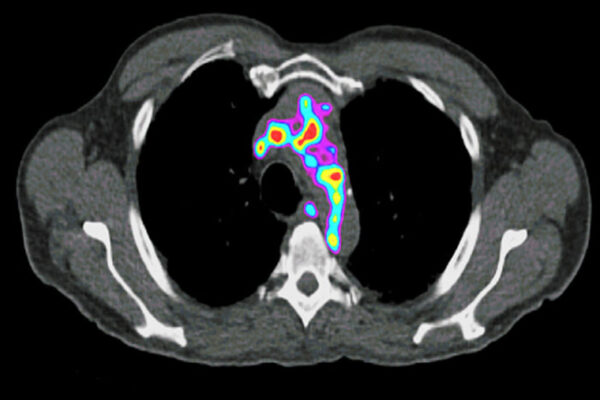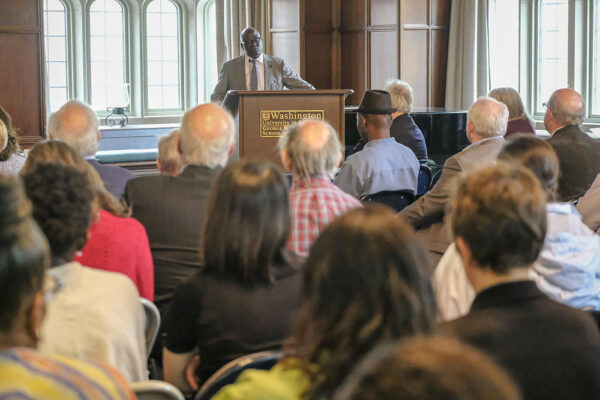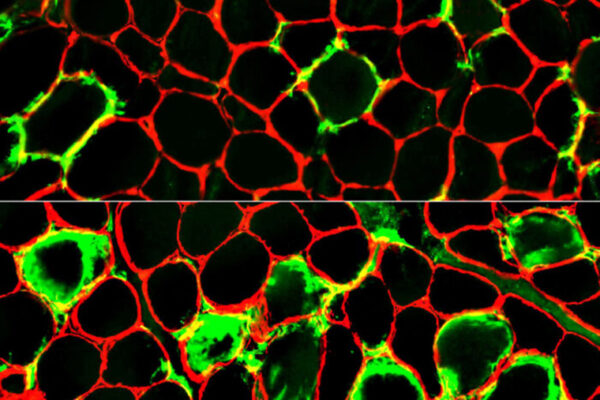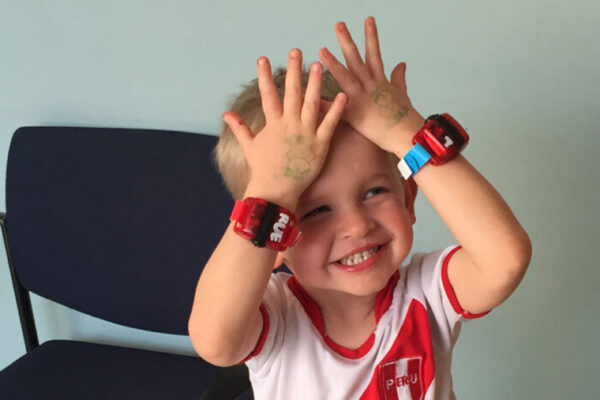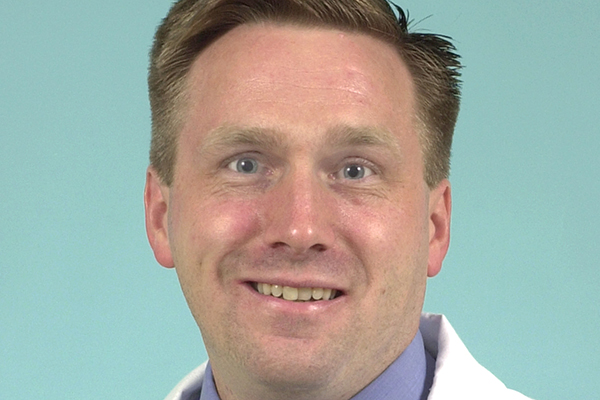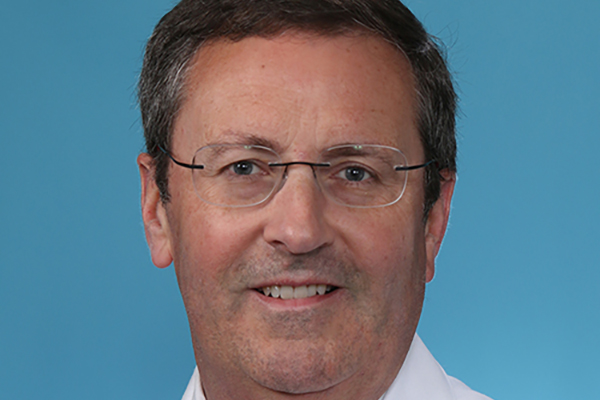$5.1 million to target silent cause of heart attacks, strokes
The School of Medicine’s Yongjian Liu has received an Emerging Investigator Award to find ways to detect plaque at risk of shedding fragments that could cause heart attacks or strokes.
Antibiotics may treat endometriosis
Researchers at the School of Medicine have found that treating mice with an antibiotic reduces the size of lesions caused by endometriosis. The researchers are planning a clinical trial to test the strategy in women who have the painful condition.
‘Lessons learned’ from engaging in Africa
Washington University in St. Louis is committed to engaging with its global partners to help address our biggest challenges together. This spirit of collaboration was evident at the inaugural meeting of the Africa initiative, held April 23 on the Danforth Campus.
Pregnancy shifts the daily schedule forward
New research from Washington University in St. Louis finds that women and mice both shift their daily schedules earlier by up to a few hours during the first third of their pregnancy. The new study shows how impending motherhood induces changes in daily timing of a mother which, when disrupted, may put a pregnancy at risk, as reported in the Journal of Biological Rhythms.
Newfound autoimmune syndrome causes muscle pain, weakness
School of Medicine researchers have identified a previously unknown, rare muscle disease that can be treated with immunosuppressing drugs.
Perlmutter named scientific director of dystonia foundation
Joel S. Perlmutter, MD, the Elliot H. Stein Family Professor of Neurology at Washington University School of Medicine in St. Louis, has been named scientific director of the Dystonia Medical Research Foundation. Dystonia is a neurological disorder that causes excessive, involuntary muscle contractions and abnormal postures.
Wearable motion detectors identify subtle motor deficits in children
A wristwatch-like motion-tracking device can detect movement problems in children whose impairments may be overlooked by doctors and parents, according to a new study from Washington University School of Medicine in St. Louis.
Carpenter named to emergency medicine board
Christopher R. Carpenter, MD, professor of emergency medicine at Washington University School of Medicine in St. Louis, has been elected to the Society for Academic Emergency Medicine (SAEM) Board of Directors. The board establishes SAEM’s mission, purpose, values and direction.
Wright recognized by orthopedic surgery organization
Rick W. Wright, MD, the Jerome J. Gilden Distinguished Professor of Orthopaedic Surgery at Washington University School of Medicine in St. Louis, has received the 2019 Kappa Delta Ann Doner Vaughn Award from the American Academy of Orthopaedic Surgeons.
Despite health warnings, Americans still sit too much
A new study led by the School of Medicine shows that most Americans spend a lot of time sitting, despite public health messages that prolonged sitting is unhealthy. Such inactivity increases the risk of obesity, diabetes, heart disease and certain cancers.
View More Stories
